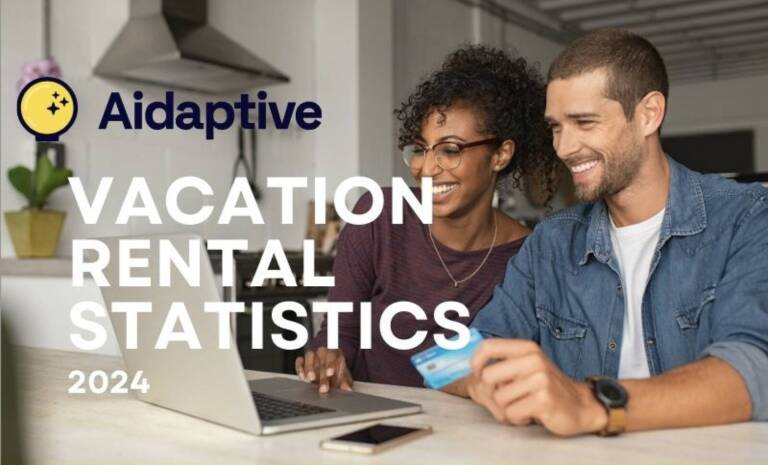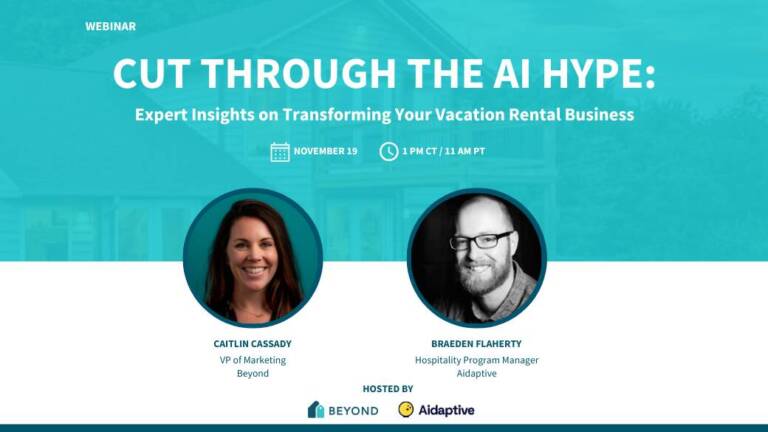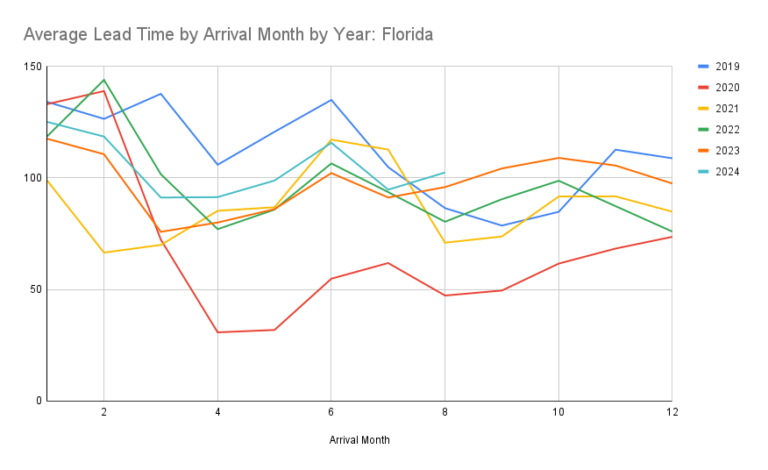What is Predictive Hospitality?
These days, personalization is no longer a “nice to have”.
Whether it’s personalizing your direct booking website, email communications, or another digital touchpoint – these days guests expect it and performance requires it.
Hospitality companies have historically benefited from the best practices of eCommerce brands (e.g., website optimization, email marketing, performance advertising).
Personalization is the next step.
However, the established tools haven’t made it easy for VRM teams to adopt.
Unfortunately, the predictive personalization technology for eCommerce teams has not been designed to fit the unique needs of a hospitality business.
And further: any available tools required technical expertise, or forced teams to waste time managing it hands-on.
Enter predictive hospitality.
Predictive hospitality is how top vacation rental management companies are driving more direct bookings through automated personalization.
It’s powered by predictive personalization technology, which leverages machine learning and your data to personalize the most critical touchpoints along the guest booking journey.
In this post, we’ll teach you exactly what predictive hospitality is, how it works, high-impact touchpoints, and how to try it out.
Predictive hospitality definition
Predictive Hospitality
[ pri-dik-tiv • häspəˈtalədē ]
Predictive Hospitality is the practice of using machine learning (ML) to predict every guest’s preferences and purchasing power to personalize experiences before, during, and after their stay.
The goal of personalization is to show each guest relevant information to help her have a quicker, easier, and more enjoyable time booking.
Most personalization solutions out there are large, clunky software suites that weren’t designed for short term rental teams.
Just think: your inventory is based on the limited number of calendar days per year for each property. That is very different from having 10,000 various T-shirts styles in a warehouse.
Predictive hospitality takes into account the nuance of short term rentals.
Why? Because the data is different. The inventory is different. Guests’ behavior is different. So the machine learning models are different too.
Here’s a familiar example: Airbnb and Booking.com are online travel agencies (OTAs) who use predictive hospitality to optimize the job of putting the right properties in front of the right guest at the right time.
And it works.
Now smaller VRMs can do the same.
How Predictive Hospitality works
Predictive hospitality can be easily explained in three parts.
1. Connect your systems to the machine learning engine
In a few clicks, the data from your core systems is integrated into the personalization engine.
Machine learning connects the dots between each guest and their preferences, interests, behavior, and booking path.
ML engines can use any data. More data means more accurate results. Some examples:
- Guest Profile
- Booking History
- Website Pages & Clicks
- Property and Amenity Info
- Email & Marketing Data
- Location & Technical Metadata
- Human Intuition (a form of data input!)
2. Automatically personalize guest touchpoints
On your direct booking site, the predictive hospitality widgets automatically display personalized properties, search results, and recommendations to each individual guest.
These get even more accurate and more personalized with more time on site.
The same consistent personalized experience can also be included in email marketing to make sure guests continue to see the right units.
In short, you’re automatically providing guests a unique and relevant booking experience, at scale.
3. Feedback loop keeps performance growing
When a prospective guest does anything – books, clicks, abandons your site, or anything in-between – these are all new data points that get fed back into the system.
Machine learning is a self-learning technology, so this feedback loop ensures results continuously get better.
Now that we know how it works, let’s touch on the benefits.
Benefits of Predictive Hospitality
Predictive Hospitality builds a personalized guest booking experience. It’s helpful, easy, relevant, and quick for each person.
When folks experience a richly personalized experience, they are:
- more likely to engage with properties
- more likely to book (and to stay longer)
- more likely to return as loyal returning guests.
This allows VRMs to increase their direct bookings and get more conversions out of their marketing spend.
In turn, it helps VRMs decrease their reliance on OTAs.
Some real life examples:
Outer Banks, North Carolina
Twiddy & Company used predictive hospitality across web and email to deliver a tailored customer experience, at-scale. They saw big results for their guest bookings:
- 600% more direct booking flows initiated
- 250% improved website conversion rate and revenue per session
- $1M+ in new revenue generated per month
Read the Twiddy & Co Success Story Here.
Northern England, UK
Host & Stay has always pushed towards a higher direct booking contribution. To do that they launched predictive hospitality: ensuring the user journey was personalized to get the right properties in front of the right guests. The impact:
- 36% higher click-through rate
- 235% more revenue on predictive recommendations
- 2% higher conversion rate
- 525% higher performance on featured properties
Read the Host & Stay Success Story Here.
Why now? Predictive Hospitality has arrived
One-to-one personalization is critical in today’s consumer market.
- According to Accenture, 91% of consumers said they would shop with brands more often that provided relevant experiences.
- Companies shared that using advanced personalization have seen a 20-to-1 return on investment for those efforts.
- 76% of consumers said personalized communications were key in their consideration of a brand – McKinsey found.
But beyond all the studies: hospitality companies are losing money by not optimizing the booking process with predictive personalization.
In addition to lost booking revenue, ad costs are getting more and more expensive. That spend is wasted when you aren’t optimizing website conversions.
In the past, this technology was only available to big companies who could afford engineering resources: Google, Amazon, Booking.com, Airbnb, etc.
Now it’s available to any sized business.
3 Predictive Hospitality use cases to grow direct bookings on autopilot
Here are three use cases that vacation rental managers are using to build their direct booking revenue contribution.
1. Predictive property recommendations
Guests are likely to come across a property recommendation pretty quickly when seeing your emails or your direct booking site.
This is familiar territory for most online users, between seeing Amazon recommendations, Netflix suggested shows, and beyond.
High quality recommendations work. It’s why giant tech companies have invested so much into their recommendation engines.
Predictive hospitality uses the same type of predictive recommendations.
These accurate and personalized properties help guests discover the best listings for them, do so more quickly, and grow the average booking value.
Whether on home pages, custom landing pages, property detail page, or on a blog page – recommendations should be personalized to help drive clicks and conversions.
Check out our guide to predictive recommendations.
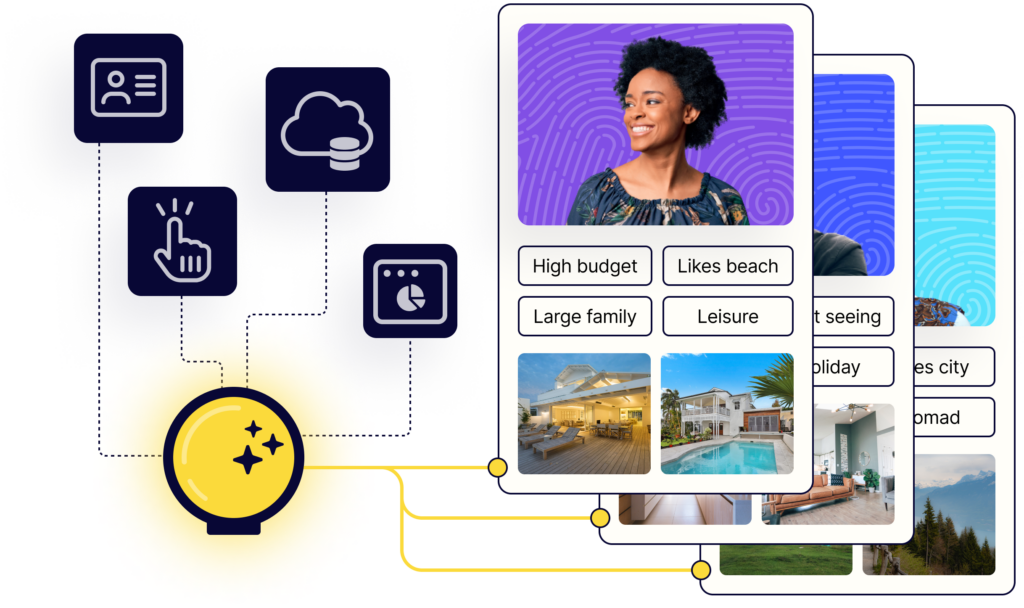
2. Predictive listing search
More often than not, a guest will use your website search to filter and narrow listing results.
Bedrooms, location, amenities, etc. These filter the results, but haven’t personalized any further.
Predictive search puts the power of machine learning behind this process. It enhances the accuracy and relevancy of the search results.
But more importantly, it prioritizes the properties that are most likely a one-to-one match with the individual guest and puts them at the top of the results. Front and center.
Personalized search results help guests quickly see the most relevant option for them. And it’s creating increases in conversion rates by +17%.
Why shouldn’t search results match not only the relevance of their search criteria, but also the predicted interests and booking path of the guest?
Read here for more on predictive search.
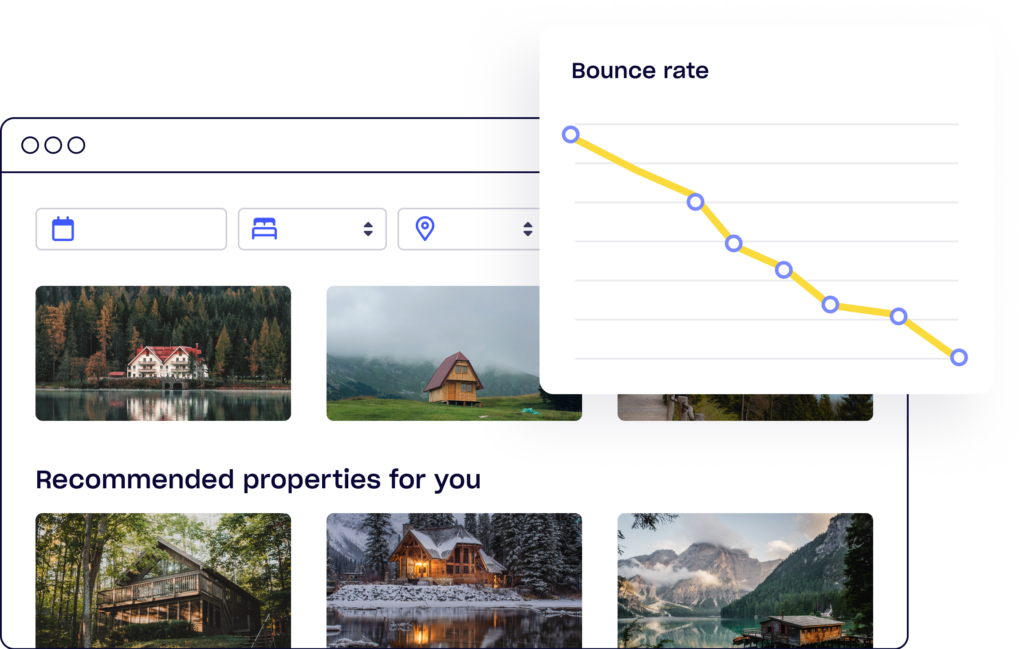
3. Predictive dynamic pricing
Vacation rental managers have long known that if they aren’t using dynamic pricing, they’re losing significantly: on both booking revenue and with wasted time doing manual updates.
But existing dynamic pricing doesn’t personalize the prices based on the particular guest – it just looks at the market prices in a given area.
You may know that Amazon has a habit of presenting different prices for different users in real-time. It’s a neat trick.
Predictive Hospitality combines the power of traditional dynamic pricing with this real-time personalized pricing.
As an alternative to raw price updates – some VRMs prefer to use this predictive pricing to show personalized “discounts” off of list-price instead.
This helps drive conversions. Why? You will always have some prospective guests who would be willing to pay 10% or 15% less.
Why not serve each prospective guest the discounted price that gets the booking?
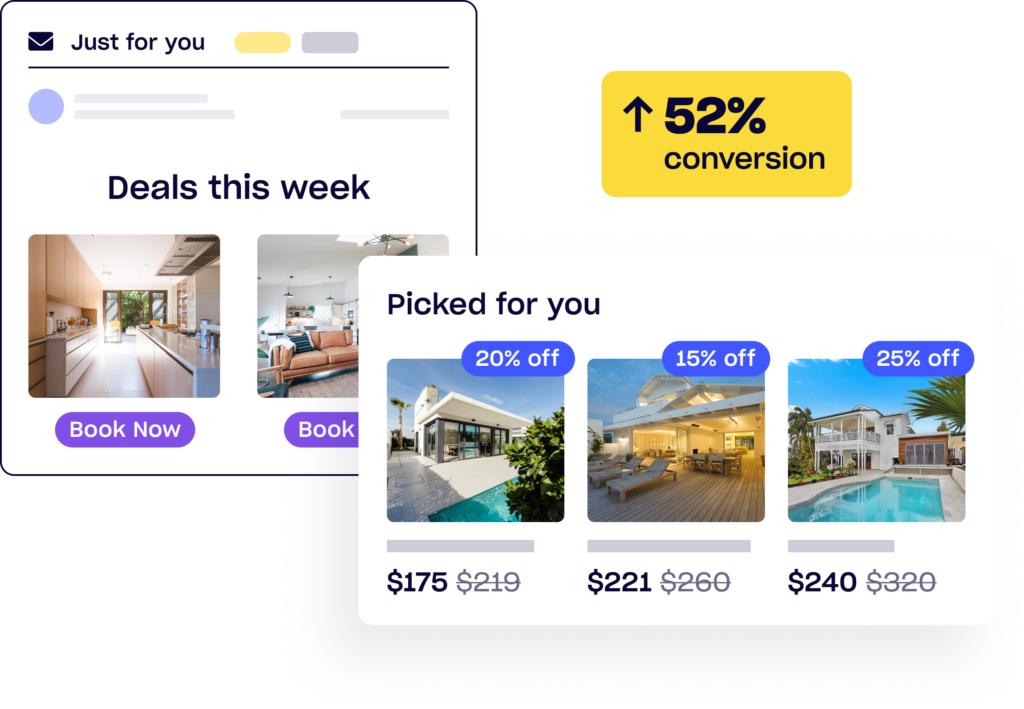
Bonus: Predictive marketing
Sending email campaigns is a core part of marketing activity.
But when trying to create bookings, fill stuck units, or bring back past customers for a 2nd or 3rd stay – what is the right content to send?
Predictive marketing makes email more effective.
Hospitality teams can automatically define email segments based on likeliness to book, purchasing power, and more.
Then, inside each email: the content and properties are individually personalized for each recipient. Dynamically.
Predictive hospitality increases direct bookings by personalizing marketing emails with more relevant properties, timing, and recommendations.
Get started with Predictive Hospitality
Using personalization for user experiences is a business standard.
Personalized property recommendations and website search are the easiest touchpoints to start with.
VRMs launching predictive hospitality today are leading the pack in: A) growing direct booking revenue contribution, and B) building autonomy from OTAs.
The bottom line: it automates your ability to create relevance for your guests and grow revenue.
So now you know how it works, how it benefits your business, and the best use cases to start with. How do you get going?
Aidaptive can help you launch automated personalization on your site today.
The process is simple: integrate core systems, let the software learn from your data, and then launch on your website with one line of code. The Aidaptive team will walk you through each step.
If you’d like to schedule a conversation, reach out to our team! We’ll answer any questions and help you set up a structured test to make sure it’s having a real impact on your site.
It’s worth running a trial. What are you waiting for?
